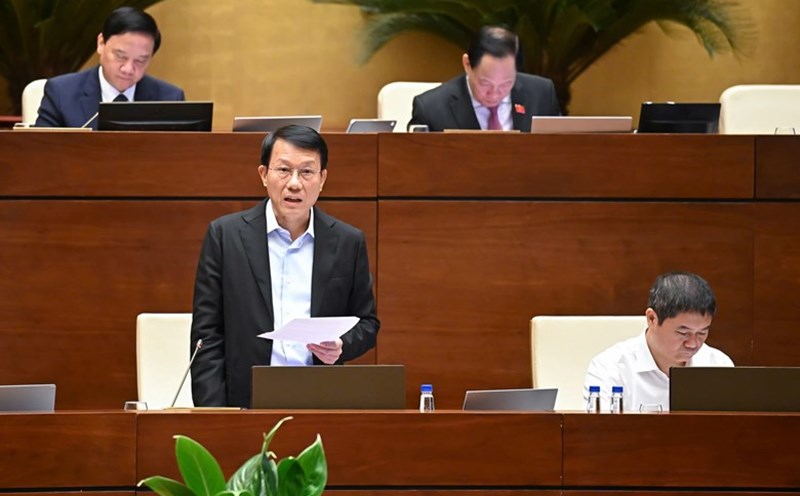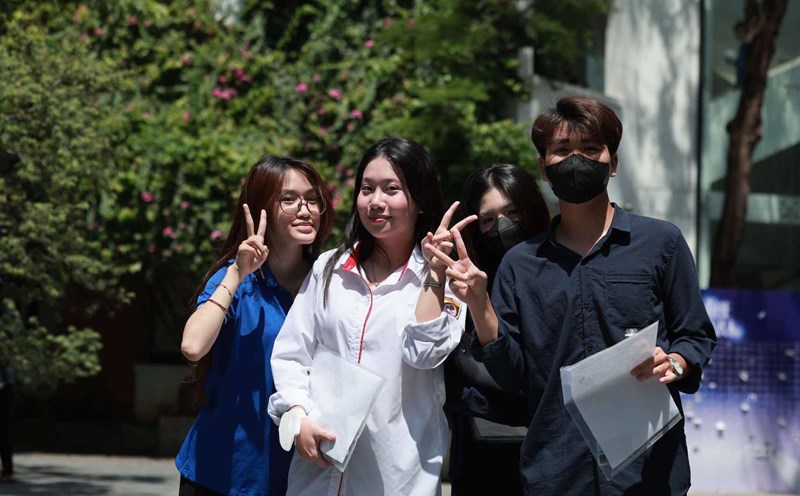KOL, e-commerce platform must take the lead
Recently, there have been many cases related to smuggled and counterfeit goods that have been exposed with the support of a number of influential accounts in the community. Ms. Vo Thi Ha Linh - Director of Ha Linh Official Trading and Service Joint Stock Company pointed out that there are 2 popular forms when KOLs and KOCs participate in sales promotion.
In the first case, they are the ones who import or produce the product for distribution. "They are sellers, so they must understand the origin of the goods, it cannot be said that they were scammed," Ms. Linh emphasized.
In the second case, they are an "extended arm" from brands or e-commerce platforms to consumers, doing affiliate marketing, not production or distribution. When participating in promotion, according to regulations, if they are sponsored or receive commissions, they must be clearly publicized.
From the platform's perspective, Mr. Nguyen Lam Thanh, representative of TikTok Vietnam, said that in the context of the rampant counterfeit goods, platforms, sellers and KOLs and KOCs must unite to fight against violations. He noted that consumers need to clearly distinguish between e-commerce platforms with payment functions and registered with the Ministry of Industry and Trade and platforms that are not licensed for payment.
TikTok is currently implementing a trial purchase mechanism to check the quality of goods. Every year, the platform removes hundreds of thousands of violating accounts. However, Mr. Thanh frankly admitted: "Platforms can only temporarily stop sales, or worse, remove accounts, and cannot handle them thoroughly like the authorities".
Struggling to track down sellers, needing support from consumers
Mr. Nguyen Quang Huy - Deputy Head of the Market Management Department of Ho Chi Minh City - said that the situation of counterfeit goods trading on digital platforms is increasingly complicated. Many sellers deliberately hide their identities, do not leave clear transaction information, causing obstacles to tracing. Even goods are stored in apartments, deep alleys, or transported through intermediaries, so it is very difficult to verify.
Mr. Huy cited a case where a relative had ordered goods through a website with a professional interface but did not register with the Ministry of Industry and Trade, did not clearly state the business or warehouse address. Although advertised as genuine goods, they are actually fake goods.
"Consumers need to boldly report when buying fake goods, instead of ignoring them because of the cheap price. It is that facility that accidentally complicates the violation, Mr. Huy affirmed.
Mr. Huy also admitted that the inspection and handling work is still limited because some officials have not met professional requirements. To increase efficiency, the Ho Chi Minh City Market Management Department proposes to apply technology such as AI to automatically detect the behavior of selling banned and counterfeit goods on platforms and social networks; combine Big Data to analyze operating rules, thereby developing an effective and accurate inspection plan.
According to Captain Vo Minh Nghia - officer of the Department of Cyber Security and High-Tech Crime Prevention (PA05), Ho Chi Minh City Police, livestream sales and digital marketing are changing with many new tricks. He recommended that KOLs and KOCs need to be especially cautious with posting content, while continuously improving their understanding of the products and brands they cooperate with to ensure providing correct and sufficient information to consumers.
"Although the authorities have made efforts to investigate and handle the violation, the methods of changing very quickly. Hopefully, KOLs and KOCs will be more responsible to the community, and share more cybersecurity knowledge with followers. If they violate the law, they can be administratively or criminally punished depending on the level," Mr. Nghia emphasized.
In addition, many e-commerce platforms and affiliated businesses have pioneered in signing a commitment to participate in the "Responsible green ticket on e-commerce" program, expressing support for efforts to fight against counterfeit and poor quality goods and working with Ho Chi Minh City to spread the program to the entire e-commerce ecosystem, towards a healthy and transparent business environment.










